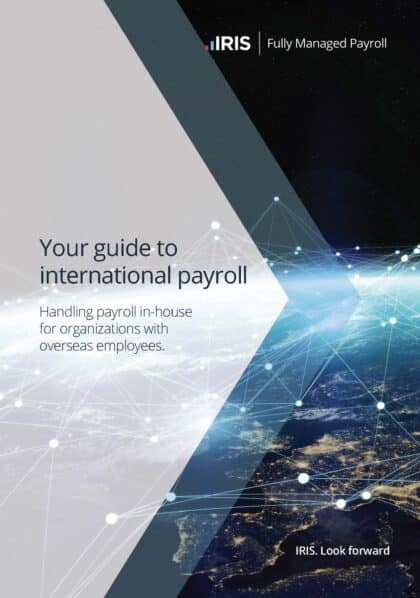Guide to International Payroll

Looking for global expansion? Your business needs unified payroll that meets international compliance, taxation and legislation.
What does our international payroll guide cover?
- Implications and logistics of a global employee base
- Employment contract compliance
- Taxation variation
- Minimum Wage differences
- Annual leave and paid sickness
- Social services, health & and pension contribution considerations
What is international payroll and what does it look like?
Payroll is the act of ensuring your employees are reimbursed for the work they do, according to local laws and pay legislation. International payroll is exactly the same, except you have a few additional points to consider, such as language barriers and international compliance.
International payroll is essential for businesses with a growth strategy that involves setting up operations overseas. It may also be a priority if key and valuable workers within your organization wish to emigrate abroad. Whenever you’ve committed to paying your employees, your business conducts a pay run in advance to ensure employees are paid on time and in full. This process also covers any taxes or contributions your business and its employees must pay to local governments.
The importance of international payroll
With overseas expansion, it can offer prime opportunity for your business, but, when it comes to building your international workforce, you may have a few hurdles to navigate first. Overseeing payroll suppliers with complex of regional legislation, in a variety of languages, can make coordinating international payroll difficult or even unmanageable. Likewise, keeping up with ever-changing local and national laws is simply too overwhelming, especially for expanding businesses.
To ensure you remain prepared for your business’s pay run, you will need to consider the following:
- Local and international pay laws are adhered to, including reimbursement for overtime or teleworking.
- Ensure compliance is upheld where data protection laws are in place, actively safeguarding your data.
- Enable your payroll and HR teams to conduct the pay run process with plenty of time to ensure employees are paid on their agreed date and no penalties are imposed by local governments.
- Cultural and language barriers that could hinder your teams from answering vital queries your employees have.
Fortunately, we are here to guide you through the different rules and regulations, and to deliver a smooth payroll service to all of your international employees. IRIS Global Workforce Management provides expert knowledge and high-quality international payroll services across 135 countries to support your company and coordinate your entire payroll operations worldwide.
Your business’s guide to international payroll
In a global economy, growing numbers of US organizations now have overseas employees – as well as US citizens on secondment. For the majority of countries, paying both local and US citizens presents a number of obstacles you may not have taken into consideration.
From statutory working hours to annual leave entitlement and contributions to health provision and state pensions, every country has very different employment policies. Our guide provides an overview of the complexities facing organizations paying employees overseas and highlights the potential pitfalls for those without a clear understanding of local laws and tax obligations.

